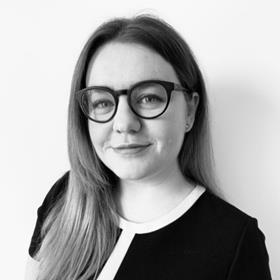I founded Project Rise with the Law Society in January 2021. The project takes a cross-firm collaborative approach to enacting change. We work with multiple law firms of different sizes who all have one key thing in common - they are interested in the possibility of doing things differently.
This time of year is always an exciting time for the Project Rise team. It’s about now that we begin to meet with law firms who are asking the question that lots of firms have been interested in for several years now - is part time training feasible for us, and if so, how do we do it?

A lack of flexible training opportunities stands as one of the significant barriers to addressing a lack of diversity in our profession, and is a source of frustration for those trying to create change in the industry. It’s not that we suffer from a lack of resources, or capability; rather, a fundamental lack of creativity. The result is that we’re significantly behind other industries when it comes to diversity. Whilst the legal world is thinking in ingenious ways how to be more creative in other areas (for example, investing in AI) we haven’t yet managed to apply that same innovation to make progress to our diversity and inclusion initiatives. It’s time to change that, and to address the 'This is the way we’ve always done it' mentality. If we don’t, the sad result is that we miss out on talented people who, for whatever reason, can’t commit to training full time.
We founded Project Rise with those people in mind.
We work with the firms to understand their individual needs and challenges, and what needs to happen for flexible training to become a reality. When the firm is ready, we ask for a commitment that all successful trainee candidates will be offered the opportunity to train flexibly, if they wish. Key stakeholders from the participating firms who are interested in the project meet monthly to share best practice and stress test assumptions about what can and can’t be done. Whilst many firms agree that they would consider requests from trainees to work flexibly (and for trainees with a disability, this may be a reasonable adjustment), the project changes the dynamic between the trainee and the firm – openly encouraging trainees to request flexible training rather than waiting for the trainee to ask. This is particularly important, given that many trainees are relatively new to the working world and might not be aware of what they need or even are entitled to ask for.
The result? Following the completion of Project Rise II last year, five firms have made the commitment to offer flexible training, with many more invested in the project for the upcoming year. They agree that it can be done and more importantly, this is the right direction of travel. We have already seen an uptake in candidates applying for flexible training, and are encouraged by the effect that other programmes such as solicitor apprenticeship schemes are helping to challenge ideas about how junior lawyers can work.
If your firm is interested in offering flexible training opportunities, it’s not too late to get involved in Project Rise III. Please contact disabledsolicitors@lawsociety.org.uk.
Lizzie Hardy is an associate at Eversheds Sutherland
































1 Reader's comment